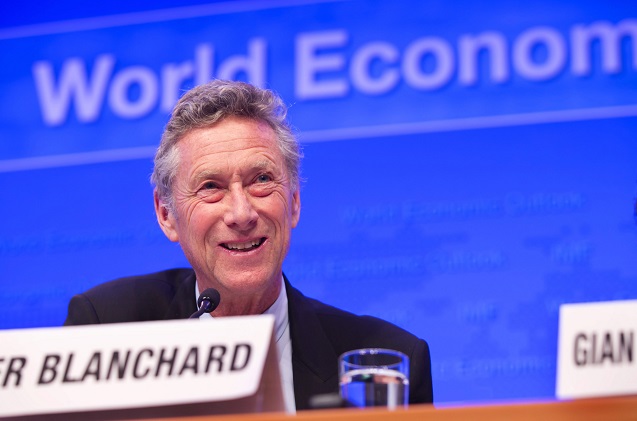
I ran into Olivier Blanchard over breakfast the other day. This isn’t as prosaic as it sounds, because we both happened to be in Hong Kong. On the other hand, it isn’t as much of a coincidence as it might seem, because there was a big financial conference there, and the set of economists who get invited to such things isn’t that extensive.
More broadly, many of the people who either make monetary policy or comment on it from fairly influential perches are members of what you might call the 1970s Cambridge mafia. Mr. Blanchard, Ben Bernanke, Ken Rogoff, Mario Draghi and yours truly all overlapped at M.I.T. in the mid-1970s; Larry Summers was at Harvard at the same time, taking courses at M.I.T.; and just about everyone was a student of Stan Fischer.
I mention this not to claim membership in an exclusive club, but simply to note that most members of this group share fairly similar views about how policy works. It’s always funny when people paint me as some kind of wild Marxist, with views on monetary and fiscal policy completely outside the mainstream. I may write forcefully, but on the substance there’s usually very little difference between what I say and what my ultra-respectable former schoolmates say.
Which brings me to the point.
Unusually, Mr. Blanchard, the chief economist at the International Monetary Fund, and I have a significant disagreement going on right now over American monetary policy (this isn’t insider information – he told the conference about it later that day). I’m very worried that the Federal Reserve Board may be gearing up to raise interest rates too soon; he’s sanguine, considering the risk of a Japan-type deflationary trap in the United States to be minimal and the case for a rate hike this year solid.
When I look around, I realize that our disagreement is part of a wider split. Among the Cambridge mafia, and in general among policy-oriented, more or less Keynesian types, there’s a surprisingly sharp divide over near-term monetary policy in the United States. And the divide seems to depend on one thing: whether the economist in question is currently in a policy position. Mr. Summers has had his time running the world, but right now he sounds exactly like me. Speaking at last month’s World Economic Forum in Davos, Switzerland, the former U.S. Treasury secretary warned that “deflation and secular stagnation are the threats of our time,” and that “there is no confident basis for tightening. The Fed should not be fighting against inflation until it sees the whites of its eyes.”
And that’s exactly what I wrote last month: “Don’t tighten until you see the whites of inflation’s eyes – and at this point there is absolutely zero sign that inflation is nigh.”
So why this divide? We don’t have access to different facts. We don’t, in any fundamental sense, have different economic models. It’s an uncertain world, but why do those in office come down on one side of that uncertainty, while those outside come down on the other?
Well, even smart, flexible people can fall prey to incestuous amplification – when a closed group of people repeat the same things to each other. And I worry that this is what is happening to the insiders. On the whole, it seems less likely for the outsiders, although it’s true that the Keynesian econoblogs form what amounts to a tight ongoing discussion group that could be creating some amplification of its own.
But if you ask me, there’s a worrying complacency among the insiders right now, and I would urge them to consider the potential consequences of being wrong.
Speaking against the authoritarian crackdown
In the midst of a nationwide attack on civil liberties, Truthout urgently needs your help.
Journalism is a critical tool in the fight against Trump and his extremist agenda. The right wing knows this — that’s why they’ve taken over many legacy media publications.
But we won’t let truth be replaced by propaganda. As the Trump administration works to silence dissent, please support nonprofit independent journalism. Truthout is almost entirely funded by individual giving, so a one-time or monthly donation goes a long way. Click below to sustain our work.